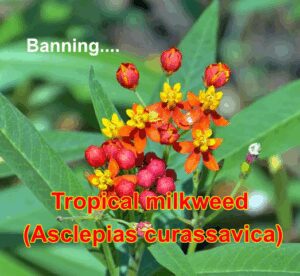🌿 Welcome to Your Personalized Garden Hub! 🌿
Special announcement go here
Hi Kendra,
This is your space — a dedicated web page built just for your garden. Here, you can:
✔️ Track your garden’s progress through service reports
✔️ Explore expert articles on native gardening in Florida
✔️ Ask questions and get direct feedback from our team
✔️ Upload photos if something looks off — we’re here to help!
Your personal referral code is F409-23 — share the love and inspire others to garden with nature.
We’re always growing, so if there’s something else you’d like to see here, let us know. This page is for you.
Save money & Mother Nature
Refer One Get One
ROGO is a referral program that offers awesome discounts to existing and future customers. Most importantly, it motivates others to engage in sustainable gardening practices, hence helping the environment one house at a time. Click Go ROGO below to learn more.
Stay Informed. Cultivating Insight, Naturally.
Reports & Other Documents
This is your personal archive of garden reports, notes, and resources. Whether it's a design proposal, soil test, or seasonal update, everything you need to track your garden's journey lives here. Accessible, organized, and always rooted in transparency.
Practical wisdom for Florida-friendly gardens
Learning with MDG
Discover tips, ideas, and insights rooted in experience and ecology. From seasonal care to soil health, these articles are here to help you grow with confidence and curiosity. Whether you're nurturing your first native garden or refining a well-loved landscape, you'll find guidance that meets you where you are.

Dandelion (Taraxacum officinale): A Powerful and Underestimated Medicinal Plant
Dandelion is far more than a common weed — it’s a powerful medicinal plant that supports the liver, digestion, immunity, and even soil health. Explore its traditional uses, ecological benefits, and research-backed properties.

Rainwater vs. Tap and Reclaimed Water
Why Rainwater Wins: Healthier Plants & Soil Beyond Conservation When most people think of rainwater harvesting, they think about saving money on their utility bill or “being green.” But there’s a far deeper benefit often overlooked: the biological and chemical magic of rainwater that directly supports your garden’s health from the roots up. Pure chemistry, pure results Unlike municipal (potable) water, which is treated with chlorine, chloramines, and sometimes fluoride to make

Tropical Milkweed Watch List
Why Tropical Milkweed Is Now on Florida’s Watch List Tropical Milkweed (Asclepias curassavica) has officially been added to Florida’s Invasive Plant Watch List -as of June 2025- by the Florida Invasive Species Council. While not fully classified as invasive yet, this move signals urgent concerns for pollinator health and ecosystem balance. The Problem Tropical milkweed remains green year-round, unlike native milkweeds that go dormant. This disrupts monarch butterflies’ natural migration
We’re here for your questions, photos, and ideas
📬 Reach Out to MDG
Use this form to share your thoughts, upload images of plant concerns, or suggest ways we can better support your garden journey. Every message helps us grow stronger together — and we’re always listening. 🌿 A member of our team will review your message and get back to you shortly — usually within 1–2 business days.
It's crazy Simple !
Small changes in habit create a huge impact in the environment.


